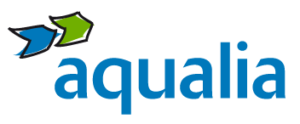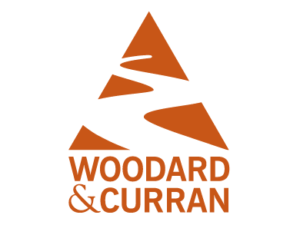Past Events
Europe: Meeting the Regulation Challenge
With Brussels in the midst of a multi-year renewal cycle of EU water rules aiming to push Europe’s water infrastructure to new levels of performance, standards are more than ever the driving force for investments in the region. Individual countries have stepped up as well, with some looking to treat emerging pollutants in wastewater streams or bolster phosphorus recycling from sewage sludge. Join the GWI Network to explore the opportunities arising from Europe’s regulatory drive, in and out of the EU, and understand how the various rules and regulatory regimes shape many of the region’s national markets.
Main Strand
Upcoming Opportunities in the Brazilian Water Market
The market for private sector water and wastewater concessions in Brazil is red hot right now, with new legislation supporting a front-loaded investment programme aimed at universalising sanitation services by 2033, at a cost of $125 billion. GWI is hosting an interactive virtual meeting with key players in the country to help you unlock the potential of this lucrative market. A panel discussion with state-owned and private water operators, national development bank BNDES, and representatives from the legal community will guide you through the opportunities and pitfalls, and will be followed by a networking session so you can make the contacts you need to get ahead.
- Join our panel of experts to learn the answers to these questions and more:
- How is the new legislation accelerating Brazil’s roll-out of water and wastewater infrastructure?
- What opportunities are on offer, and how are they being structured so as to maximise value?
- How can non-Brazilian players position themselves to add value in this fiercely competitive market?
Main Strand
Related Strands
Meeting format
Panel Discussion & Roundtables
Key Meeting Participants
BNDES
Aegea Saneamento
CORSAN
Abu Dhabi's Desalination Future
Abu Dhabi has begun to outline its plans for a new generation of desalination plants that will provide water to the emirate for decades to come, while rewriting the rules on performance for the technology. Pioneering the use of on-site renewable energy generation at the $868m Taweelah project made it a signal for the future of renewable energy in the water sector. Meanwhile the project’s scale and use of green finance planted the flag for desalination’s place in the forefront of innovation for infrastructure development.
As one of the world’s largest and best-regulated sectors for investment in seawater desalination, Abu Dhabi is set to continue its role as a hub of excellence, pushing the limits of technology while creating a space for the world’s most skilled investors, contractors and equipment suppliers to map out the future for desal.
Main Strand
Meeting format
Panel & Roundtables
Key Meeting Participants
- Bruce Smith, Forecasting and Planning Director, EWEC
- H.E. Eng Fatima Mohammed Khalifa Alfoora Alshamsi, Executive Director of Energy Policy, Department of Energy, Emirate of Abu Dhabi
- Karen Stummeyer, Projects Director Seawater Desalination, Fichtner
- Corrado Sommariva, Shareholder & Founder, Sustainable Water & Power Consultants
- Mohammad Abdelqader El Ramahi, Director, Asset Management and Technical Services, Masdar Clean Energy
- Thomas Altmann, Vice President, Technology, ACWA Power
Upcoming Project Opportunities in Latin America
After a challenging year for Latin America due to the widespread impact of the COVID-19 pandemic, municipal and industrial markets are opening up with significant opportunities in 2021 and beyond. This interactive virtual meeting will bring together key stakeholders from across the Latin American region, with high-level speakers from Mexico, Peru, Chile, Colombia and Argentina, to provide insights into some of the most significant water and wastewater investment initiatives in the region.
From PPP for desalination in Mexico and Chile and wastewater in Peru, to large EPC contracts funded by DFIs as part of the province of Buenos Aires five-year Infrastructure Plan, this meeting will shed light on emerging business opportunities and provides an excellent collaborative network of business contacts through the dynamic roundtables format.
Join our expert speakers to hear the answers to these questions and more:
- What opportunities will be offered through Mexico’s and Peru’s PPP project pipeline in 2021 and beyond?
- How does the increase in copper prices translate in water and wastewater spending?
- Which Chilean mining projects are planning desalination plants and what are the latest trends in project procurement?
- What are the investment priorities of the main DFIs financing water and wastewater projects in the region?
View country outlook videos from this meeting.
Main Strand
Related Strands
Blue-Green Infrastructure: What works and why it's the future
President Biden plans to mobilise $5 trillion in public and private sector investments over the next ten years to ensure that buildings, water, transportation, and energy infrastructure can withstand the impacts of climate change.
With sea-level rise, increasingly frequent and intense storms, and heavier rainfalls already presenting significant challenges in many US states, stormwater management and flood control will be an important component of this ambitious investment.
Blue-green infrastructure, consisting of natural approaches to water management, promises to be a sustainable and cost-effective solution. It can control floods and urban stormwater runoff while addressing water quality impacts, and provides triple-bottom line benefits such as urban greening. In many cases it is also vastly more cost-effective than traditional ‘grey’ infrastructure approaches.
In partnership with Stantec, and presented by GWI, this discussion brought together policy makers, industry experts, and city and utility leaders to define the new agenda for climate– resilient blue-green infrastructure, reflecting on the successes thus far and the potential for future applications.
Key Issues
Featuring four case studies from New York, Louisiana, New Orleans, and Los Angeles, where communities already have ground-breaking programmes underway to tackle hurricane recovery, flood management and water quality control, this high-level meeting will address the following key issues:
- What are the benefits of blue-green infrastructure and how should they be quantified?
- How can we replicate the programmes that have been successfully adopted to date?
- What funding models are available, and are they sufficient?
- Why should blue-green infrastructure be a federal investment priority?
- How can digital technologies and other innovations facilitate further adoption?
- What role can the private sector play in supporting blue-green programmes?
View case study videos produced in advance of the meeting.
View discussion highlight videos from the meeting.
Main Strand
North America: Desalination and Reuse Roundtables
This session, brought to you by GWI, in partnership with Aqualia and Woodard & Curran, focused exclusively on water reuse and desalination in North America, bringing together key players involved in some of the most significant projects in the region, recreating the high-value interactions that have otherwise become impossible during the COVID-19 pandemic.
Increased water scarcity is decreasing reliability of existing water sources and driving up the price that utilities pay for their current supply. Both of these factors are causing alternatives like reuse and desalination to become more attractive. The federal government is also playing a role in advancing desal and reuse, and the market is ripe for technological innovation.
This session, which replicates a traditional roundtable format in a virtual space, is a vital networking opportunity for those involved in the projects market in North America, providing insights into specific business opportunities and how these interface with aspects such as broader capital spending, and regulatory compliance needs, as well as the drivers and policies that are shaping the market. 20 industry expert speakers hosted table discussions on specific water reuse and brackish and seawater desalination projects that are in the conceptual or procurement stages, as well as broader policy issues affecting the desal and reuse market, such as regulations around potable reuse.
Main Strand
Transforming Water in the Middle East
Taking place fortnightly between September and November, the Transforming Water in the Middle East Series brought together key players involved in some of the most significant water and wastewater investment initiatives in the region.
he expertise of the international private sector will play a crucial role in addressing the water needs of the Middle Eastern region in facing down historic water scarcity brought on by an arid climate and aggravated by rapidly growing populations and shifting economic priorities. The region offers a highly competitive projects landscape which continues to be at the cutting edge of infrastructure developments at the intersection of water technology, innovative finance and energy. Forging collaborative networks will not only be vital in staying up to date with current affairs but also managing the shifting risk profile these opportunities present.
This initial series of six sessions aimed to enable project proponents to communicate their ambitions and expectations to potential partners, and for contractors, innovators and other suppliers to initiate the relationships they need for success in the region.
Saudi Arabia’s IWP and ISTP Programme: future expectations and developments
Khaled Al-Qureshi, CEO of the Saudi Water Partnership Company shares his ambitions and expectations for future developments.
Accelerating Egypt’s $2.8 billion desalination programme
What further steps are being taken to rationalise water usage and where are the opportunities for the international private sector to support this three-stage, EGP45 billion ($2.8 billion) programme?
Securing Jordan's water future
High-level representatives from the Ministry of Water and Irrigation (MWI), KfW and USAID discuss the repositioning of the Jordanian water sector and how the country is finding new approaches to funding infrastructure to ensure a sustainable water future.
Upgrading Saudi Arabia’s Wastewater Treatment Sector
Eng. Majed Al Ruwaili, General Manager Environmental Compliance & Wastewater Services of the National Water Company explains how this new approach to bringing private finance into state-owned wastewater treatment assets differs from previous plans and explains the next steps in stimulating private investment in the upgrading and enhancement of the Kingdom’s Water Treatment sector.
Maximising Water Reuse in Oman
Suleiman Khamis Al Qasmi, Acting Chief Executive Officer & General Manager, Haya Water and Abdullah Al Hashimi, Project Director, Marafiq share the latest developments and opportunities.
Water and hydrogen for a sustainable future at Neom
Water Sector Head, Gavin Van Tonder, shares details of the project and process which will define the next steps in Neom’s strategy combining renewable energy with water, demonstrating new ways of managing utility supply using the latest in modern technology.
Main Strand
Copyright © Global Water Intelligence 2020. All rights reserved.




